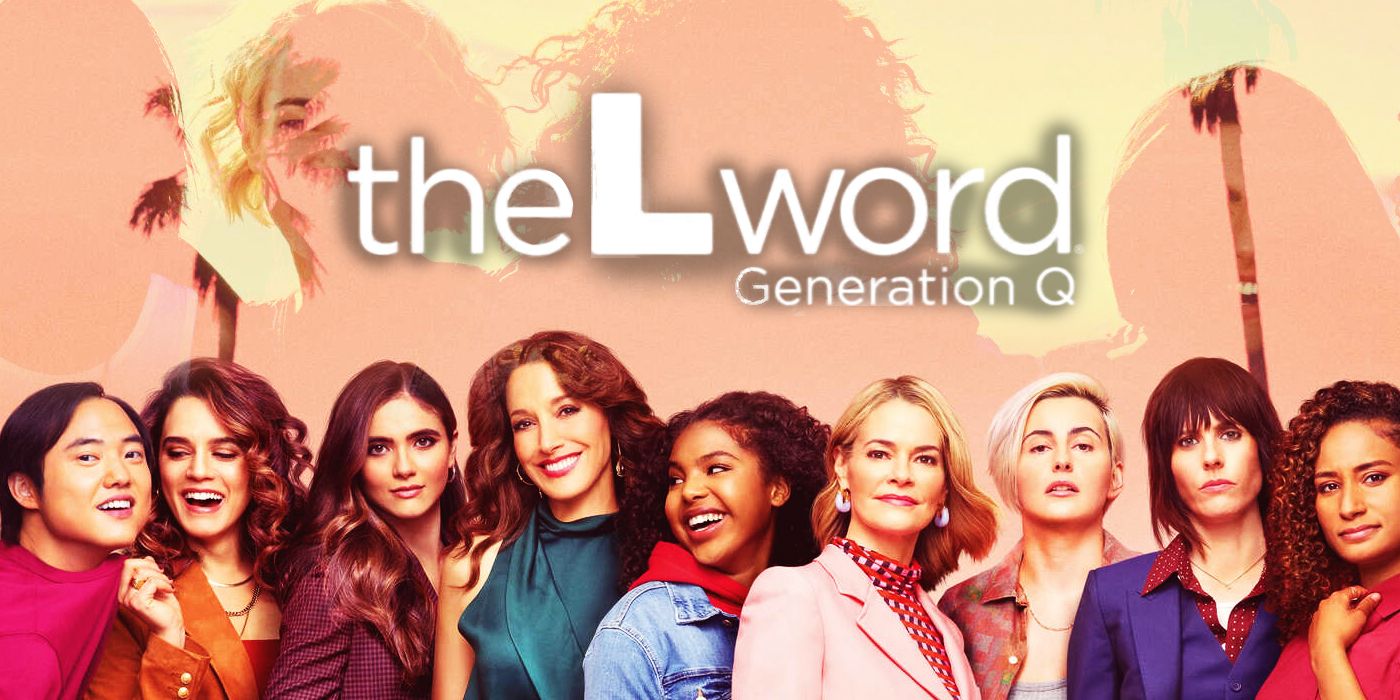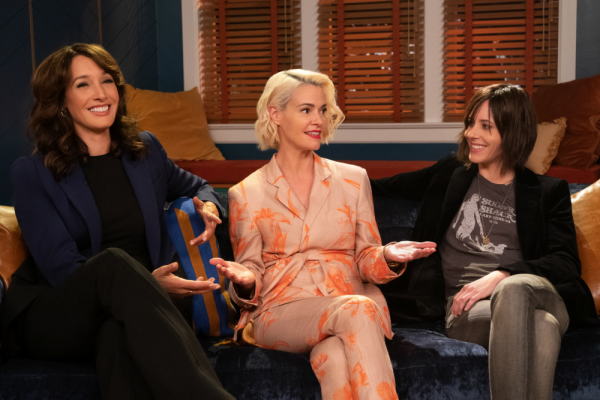Over the course of six seasons, The L Word cemented itself as groundbreaking television for queer lives storytelling. Bette Porter (Jennifer Beals), Shane McCutcheon (Katherine Moennig), and Alice Pieszecki (Leisha Hailey) cut their juicy character's teeth on the original series. Eleven years later they reprise their roles, alongside a cast of new, younger, queer characters, on The L Word: Generation Q.
Bette, Shane, and Alice are best friends with well-creased comfort, humor, and real talk. They can’t hide from each other and love is their language. They are more accomplished professionally and more developed interpersonally. Shane is navigating a divorce from Quiara Thompson (Lex Scott Davis) and a relationship with her business partner, Tess (Jamie Clayton); Bette is co parenting with her ex-wife, Tina Kennard (Laurel Holloman) and being a mom to Angie Porter-Kennard (Jordan Hull); and Alice is exploring a complex relationship with Nat (Stephanie Allynne).
By now, Beals, Moennig, and Hailey know their characters inside out, so the pleasure is ours. Six episodes into a perfect second season, their catharses eviscerate these scenarios. Watching Bette, Shane, and Alice reckon with themselves also means realizing how much we don’t know until they speak their truths.
With a sharp glance around the poker table, Bette says she will regret cheating on Tina for the rest of her life. She dares anyone to contradict her, even as she judges the emotional mess between Dani Núñez (Arienne Mandi), Sophie Suarez (Rosanny Zayas), and Finley (Jacqueline Toboni). Bette repents plenty to Tina in the original series but never states anything like this. Bette has another serious relationship following a break-up with Tina in the original series, which ends because Bette cheats on that girlfriend with Tina.
By The L Word’s conclusion, Bette and Tina give it another go; eleven years later, they are divorced, so things soured off-camera. The “rest of her life” in Bette’s statement is significant. Bette feels the loss of Tina acutely, especially when Tina announces her engagement to Carrie (Rosie O’Donnell) in the sequel’s first season. Bette's contorted heartbreak and desiring happiness for Tina is potent.
When Angie talks to Shane about her conflicted feelings around meeting her donor, who is dying, Shane affirms Angie’s moment of emotional difficulty. Shane’s listening powers, a cornerstone of her personality, have attuned as she ages. Her guidance comes by looking inward; she tells Angie that she hurt someone she loved deeply, referring to leaving Carmen de la Pica Morales (Sarah Shahi) at the altar because she was scared.
Older Shane knows that short-changing yourself cancels out growth. Angie understands: there is no singular truth, but there is instinct and reflection, and all choices have (mostly) irreversible consequences. Shane has girlfriends after Carmen, notably Paige Sobel (Kristinna Loken) and Molly Kroll (Clementine Ford), and both relationships end badly. While it seems Shane gave her marriage her best, she pulls an OG move by sleeping with Tess’ girlfriend in the sequel’s Season 1. Her road to happiness and respect in intimate relationships is slippery.
Dana Fairbanks (Erin Daniels) was Alice’s best friend and the love of her life, and she dies of breast cancer in The L Word’s Season 3. In The L Word: Generation Q, Alice reflects on Dana’s death to her editor, Tom (Donald Faison), who encourages her vulnerability. Alice breaks. She thinks about Dana, sees her all the time. She is heartbroken and still can’t believe she lost Dana to a disease. Seeing Alice this raw is shocking; she never addresses her pain this way after Dana passes. We finally understand Alice has been living with grief every day (in canon, that means through season six in the original series and into the sequel’s second season).
We can review Alice’s relationships, and overall mental state, with greater insight, knowing a part of her personal struggle since Dana's death is rooted in that loss. Alice’s difficulty to move on is similar to the voids Bette and Shane feel in their lives, having lost Tina and Carmen. Another touchpoint for Bette and Shane’s unveilings are O’Donnell and Clayton in their solid performances as Carrie and Tess. Carrie and Tess enter Bette and Shane's worlds easily, without a shared backstory for the equivalent of six seasons, and their work is outstanding.
Shane is my favorite OG catharsis-ee. She asks Finely, if she and Sophie have feelings for each other, "what’s the problem?," and I love her clarity. If you experience tragedy and share what you learn, maybe you can help someone else navigate theirs. You can (still) trip up; Shane is human, and that’s real and important for audiences to see. She gives good advice, even when she doesn't act on it. Despite, or perhaps because of, her journey, The L Word: Generation Q Shane is becoming a mentor because she is clearing up.



